Intertidal Objects
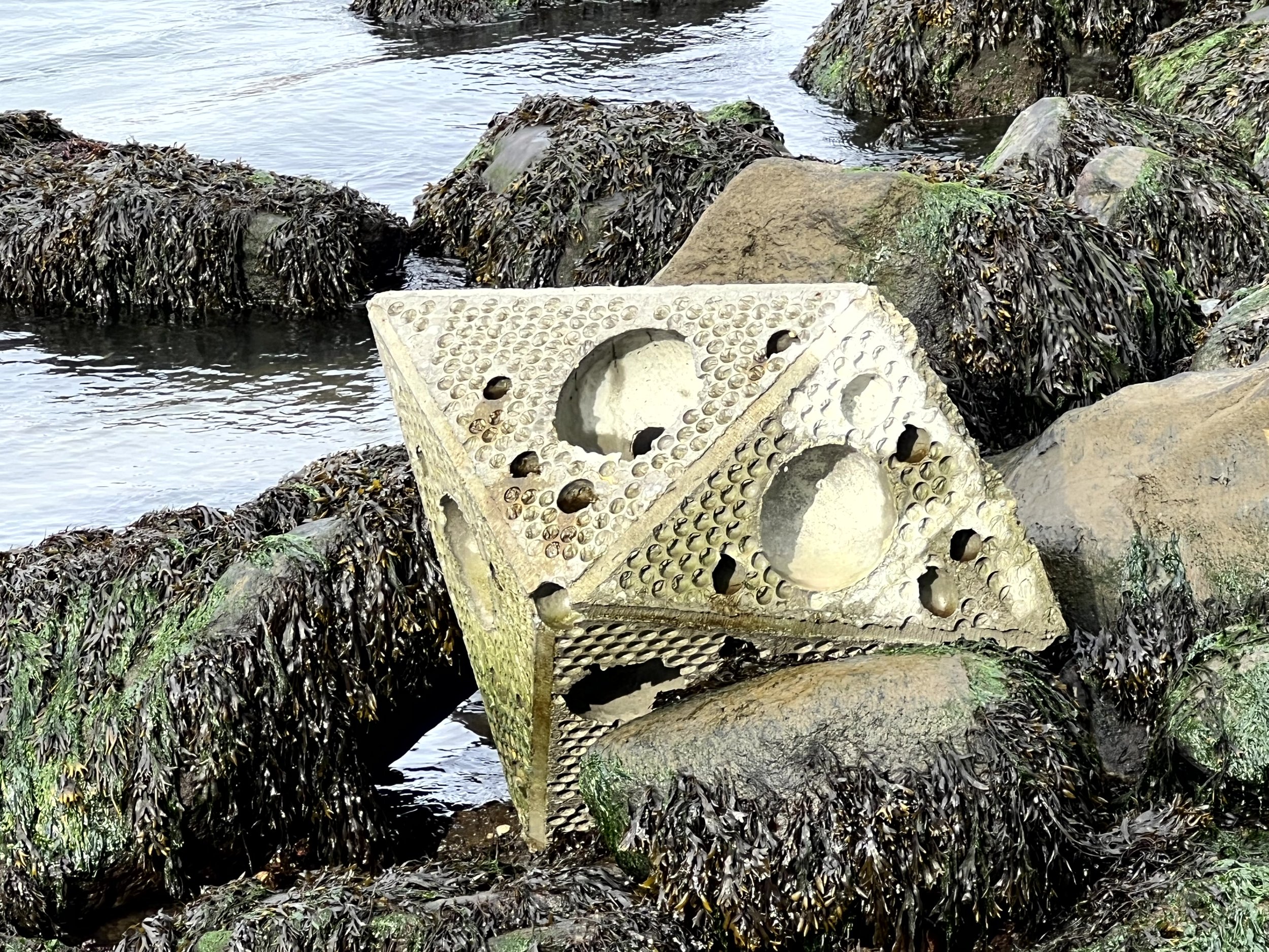
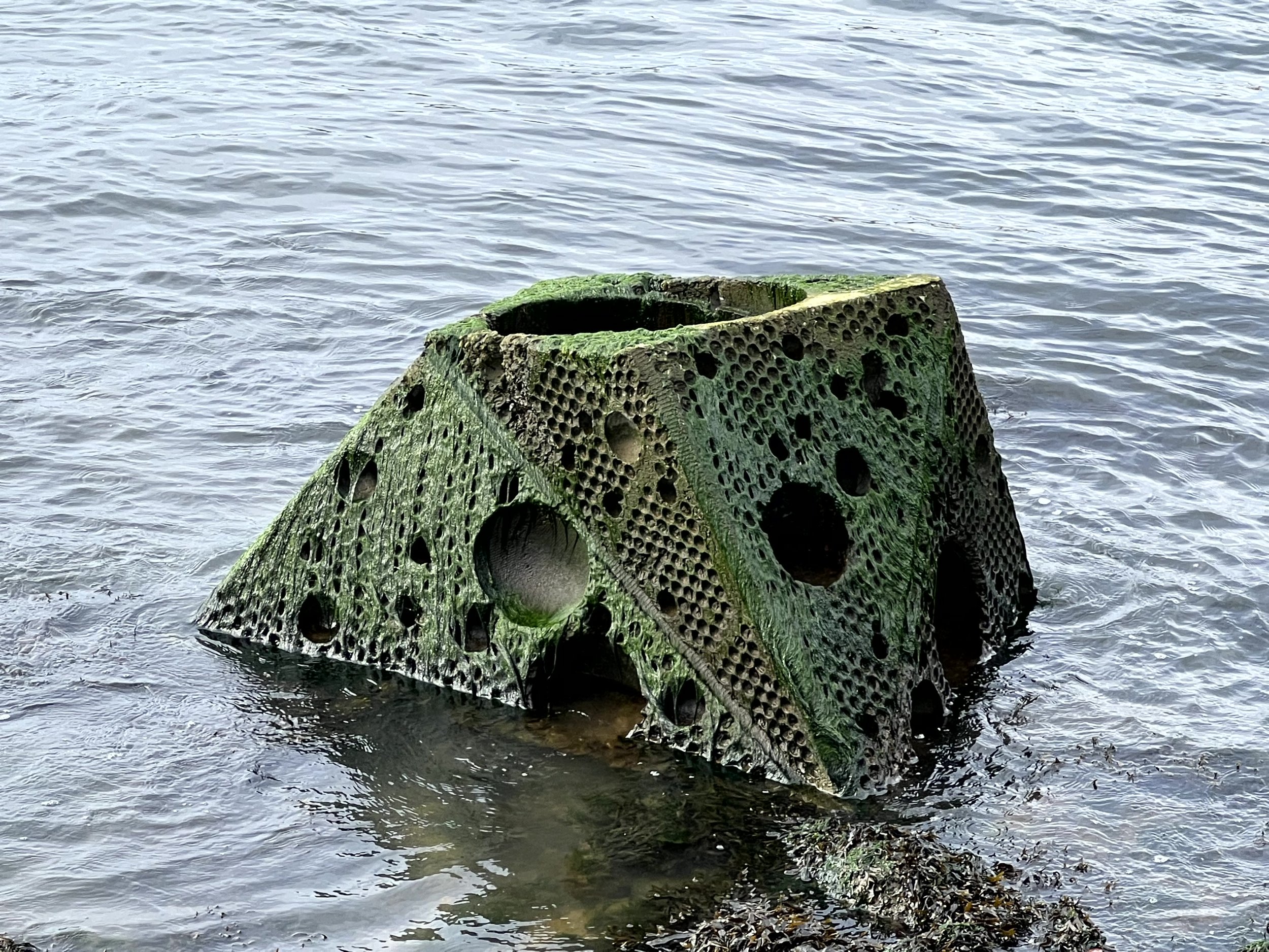
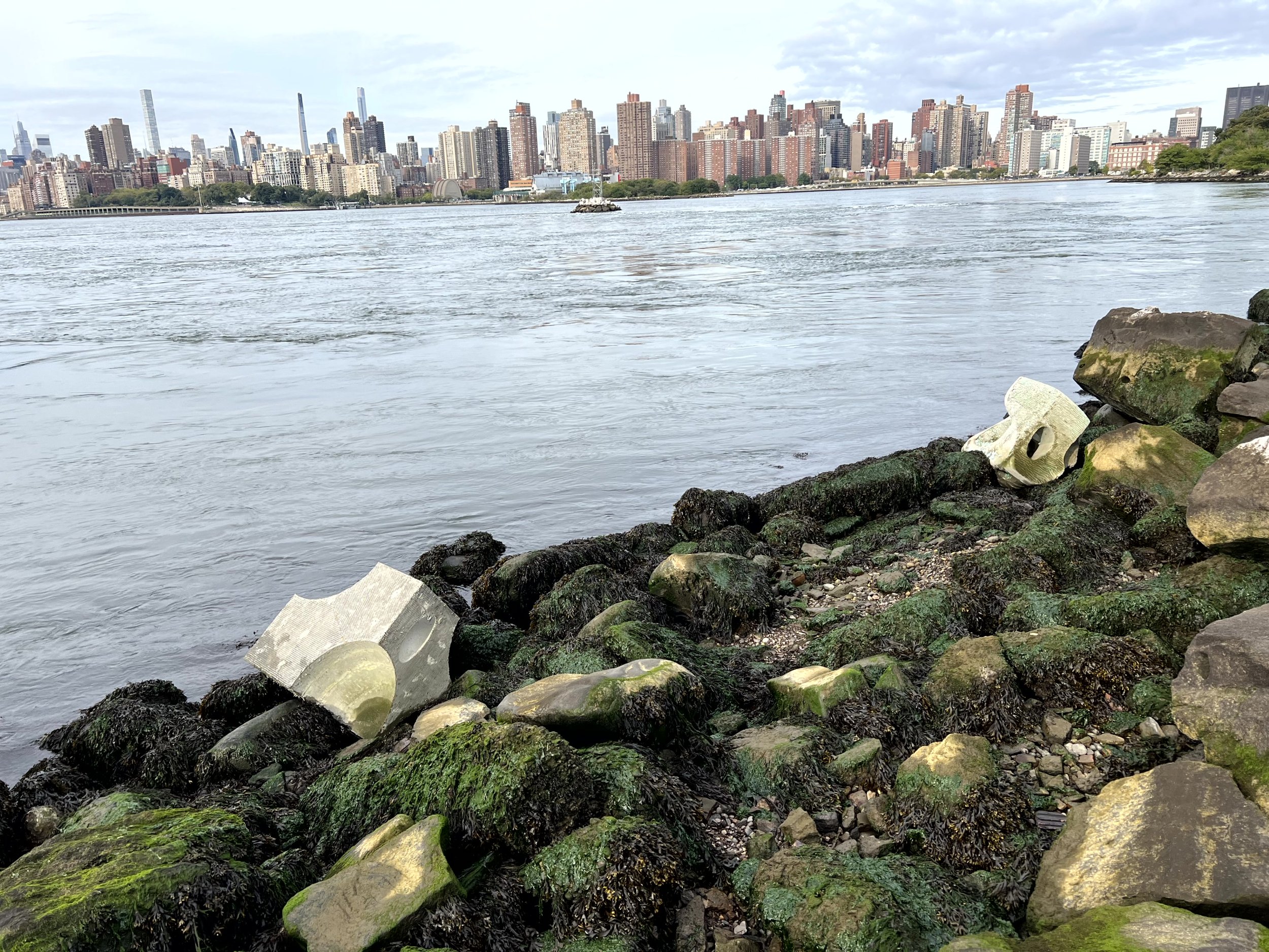
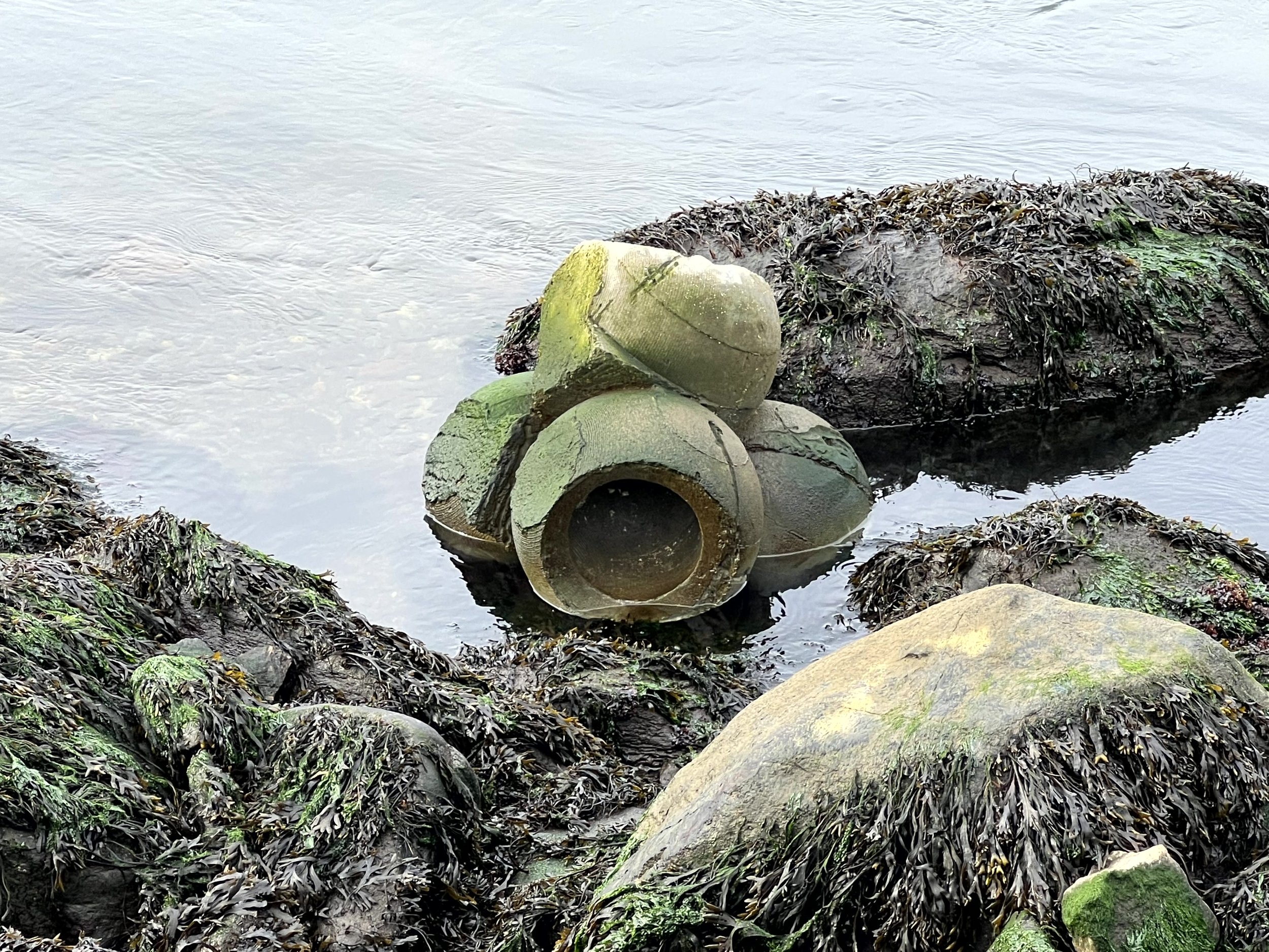
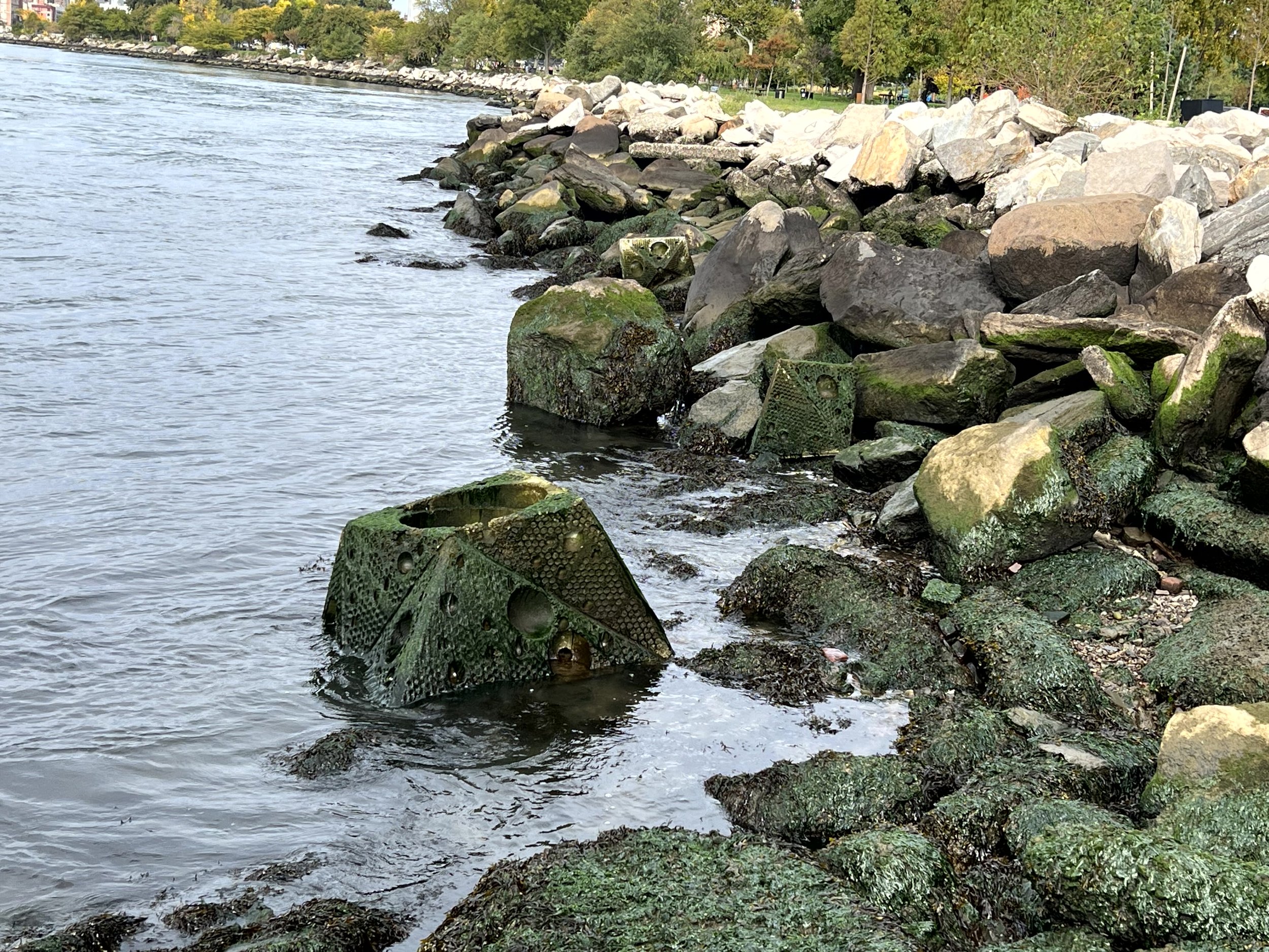
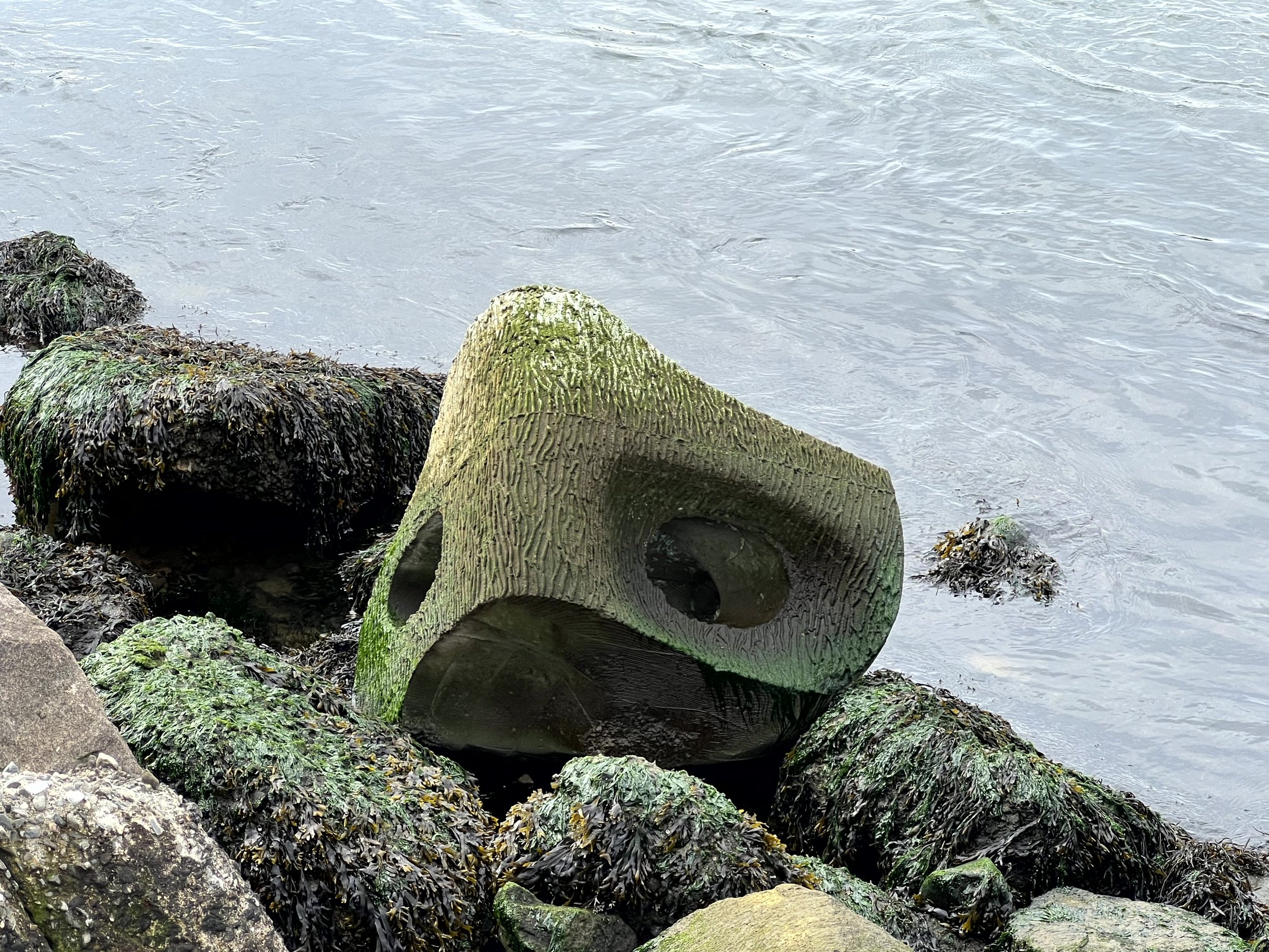
A Design Solution for Coastal Erosion
Much urban coastline exists as hard sea walls or riprap, large piled stones or other durable material used to armor the coast against erosion and wave action. These have replaced long gone conditions in which the coasts existed in softer forms with vegetations and other life that mitigated against storm surges.
Students studied what happens within the eco-system of intertidal waters, using New York Harbor as a site for intervention. Understanding what used to grow there and what could grow there, students composed three-dimensional units to fit into existing shoreline riprap meeting performance criteria of ecological coastal armoring units, which, when placed in intertidal waters, create micro-environments for small aquatic creatures and algae. Geometries yielded miniature tidal pools and promote plant growth through voids and surface articulations. The objects had to perform yet have visual interest as they would be visible along the shoreline. Part of the challenge was moving from concept into fabrication, a design exercise in itself. These were installed at Randall’s Island in New York City and a marine biologist will observe the efficacy of the proposals over time.
Project Date: 2022
Researcher: Marcus Carter/OBJECT TERRITORIES
Researcher Assistants: Joli Brown, Brendan Bielanda, Aditi Jayashankar, Abigail Light, Miranda Luck, Ethan Mihltin, Cooper Myers, Mary Reynolds, Jennifer Russo, Teshawn Sinclair, Page Wheeler
Collaborators: Randall’s Island Park Alliance (Park-As-Lab Program)

